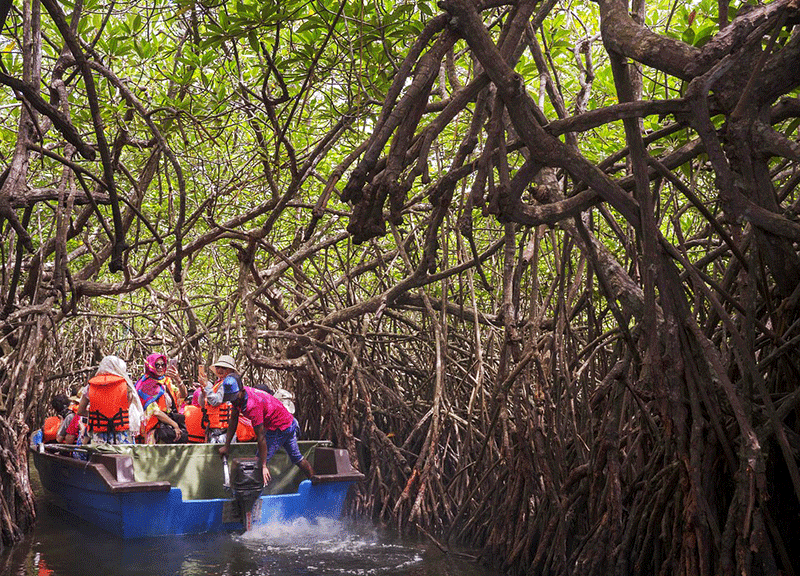Sri Lanka gets UN Award for Mangrove Restoration
Sri Lanka has been named a 2024 UN World Restoration Flagship for its outstanding efforts to rehabilitate and rejuvenate its mangrove ecosystems.
On Tuesday, February 27, Anil Jasinghe, CEO of Sri Lanka’s Climate Change Office, and Professor Sevvandi Jayakody, a senior lecturer at Wayamba University, accepted the prize in Nairobi, Kenya, during the UN Environment Assembly.
High Commissioner Veluppillai Kananathan and Ruwan Wijewardena, a senior presidential climate advisor, joined them.
The sixth session of the United Nations Environment Assembly (UNEA-6) will be held from February 26 to March 1, 2024, at the headquarters of the United Nations Environment Programme (UNEP) in Nairobi, Kenya.
The Open-ended Committee of Permanent Representatives’ meeting, which took place from February 19 to February 23, 2024, laid the groundwork for UNEA-6.
This honor recognizes Sri Lanka’s leadership in tackling environmental concerns and inspires other countries to pursue ecosystem restoration initiatives. The renowned award recognizes Sri Lanka’s expert application of the United Nations Principles for Ecosystem Restoration, highlighting globally significant best practices that have the ability to lead the way for future global success.
The devastation caused by the 2004 tsunami shed light on the critical role mangroves play as coastal guardians. Despite this knowledge, continued mangrove damage and the lack of a defined conservation framework slowed development.
Since 2015, Sri Lanka has been committed to fortifying its coastal ecosystems, resulting in the formation of expert panels, task forces, policies, action plans, and restoration guidelines, as well as comprehensive coalitions for successful action and conservation.
A novel, science-driven model that emphasizes restoring ecological services, reestablishing equilibrium across the entire ecosystem, and enhancing connectivity serves as the foundation for Sri Lanka’s mangrove restoration strategy.
Youth engagement as researchers and future restoration leaders, combined with collaboration across multiple stakeholder groups such as the government, NGOs, corporate sector, university, and community, has resulted in a forward-thinking restoration paradigm.
The UN Flagship Restoration Award recognizes Sri Lanka’s sustainable solutions for restoring these critical ecosystems, which support countless lives and livelihoods across the island.

